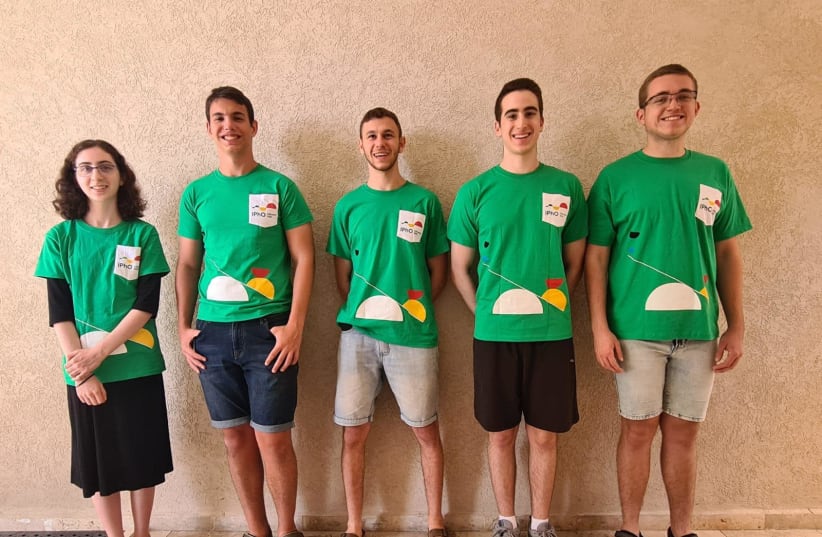With 450 students from 90 different countries, the International Physics Olympiad (IPhO) held its 54th competition in Lithuania last week 30 – and five Israeli high schoolers brought home silver and bronze medals.
The competition celebrates the significance of physics and aims to encourage the study of science and technology among high school students across the world.Each country sends a delegation of five students who train for the competition in advance. In Israel, the team is run by the Education Ministry and the Future Scientists Center of the Maimonides Fund and trains at the Jusidman Science Center for Youth at Ben-Gurion University of the Negev under the guidance of Prof. Oleg Krichevsky and Dr. Itamar Hason.“The medals the team achieved are equal in their national value to the medals being won by our best athletes in the Olympics in Japan,” said Ben-Gurion University president Prof. Daniel Chamovitz. "These teens who roamed the campus with a thirst for knowledge and curiosity for scientific understanding, are undoubtedly the promise for the future of research and development in Israel.”
The champions of this year’s Olympiad were Dolev Ronen, Lior Bar Hillel, Sean Tcherniaev and Tamir Shpiro, who all won a silver medal, and Reut Shifra Goldberg earning bronze.
The Physics Olympiad began in 1967, following the success of the International Mathematics Olympiad, at first with only five participating countries. Now, students from all over the world gather for eight days that consist of contests, exams, lectures, games and projects. The medals are awarded according to the results of the theoretical and experimental exams.